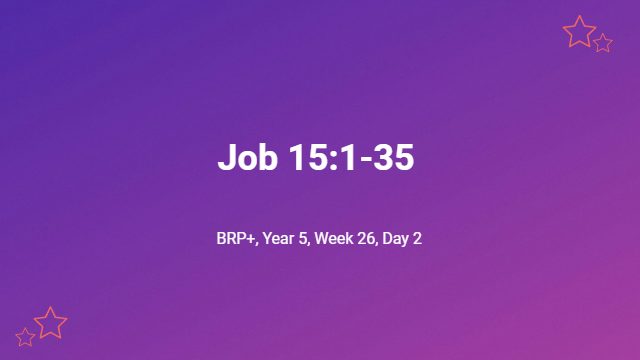Job 15:1-35
Q.1. What attitude did Eliphaz display toward the suffering Job? What insights did he give about God and man? – (Job 15:1-16)
Eliphaz made no allowance for Job’s considerable losses and pain, as he charged him with guilt – “Your own mouth condemns you, and not I; And your own lips testify against you (Job 15:6). He implied that Job didn’t know what he is talking about, because he didn’t know as much as God (Job.15:8). He accused Job of being ungrateful for God’s mercies (Job 15:11). He suggested that because people are unrighteous, God dismisses them, since – “… He puts no trust in His holy ones, and the heavens are not pure in His sight (Job 15:15). How much less – … one who is detestable and corrupt … (Job 15:16). This would be insulting to Job. Eliphaz’s view of God was cold comfort to the suffering saint (c.f. Jms.5:11).
Q.2. What explanation did Eliphaz give about the demise of the wicked? Is this always the case? What did he imply about Job’s suffering? – (Job 15:17-35)
Eliphaz then implied that Job was being treated by God like the wicked, and like one who had spoken arrogantly against the Almighty (Job 15:20-25). His view that God consistently brings pain and terror to the ungodly in this life, was overly simplistic (Job 15:20-35). As Jesus taught, our just recompense will come in the here-after – 28 Do not marvel at this; for an hour is coming, in which all who are in the tombs will hear His voice, 29 and will come forth; those who did the good deeds to a resurrection of life, those who committed the evil deeds to a resurrection of judgment (Jn.5:29). Even if Eliphaz’s view was correct (which it was not), he was incredibly harsh to his friend.

